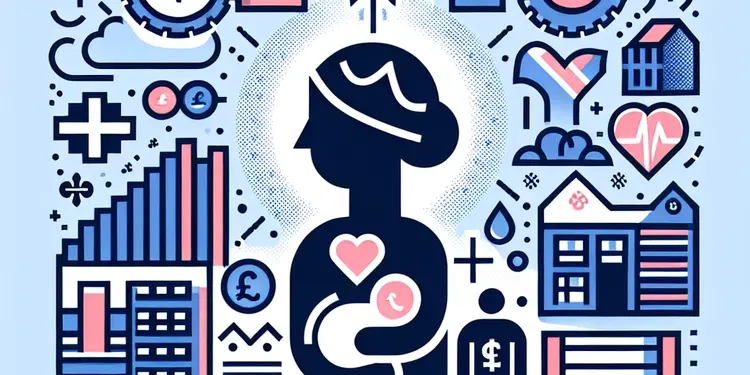
Find Help
More Items From Ergsy search
-
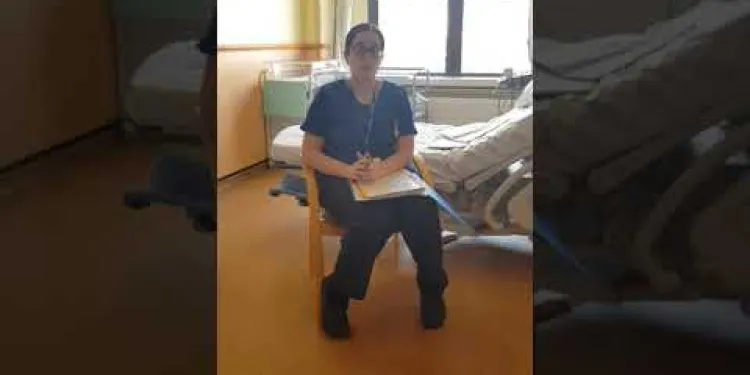
Postnatal Depression
Relevance: 100%
-
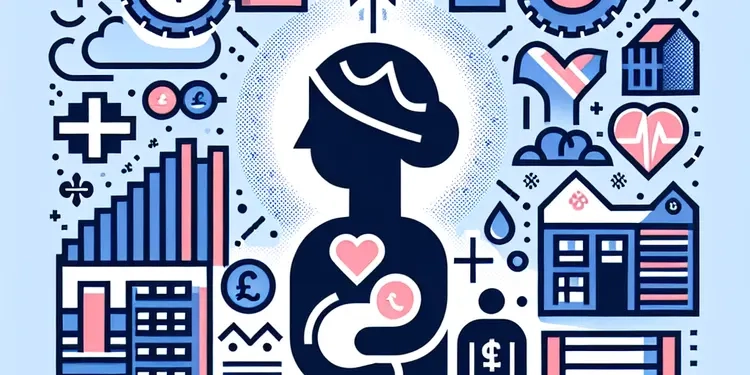
What is postnatal depression?
Relevance: 96%
-
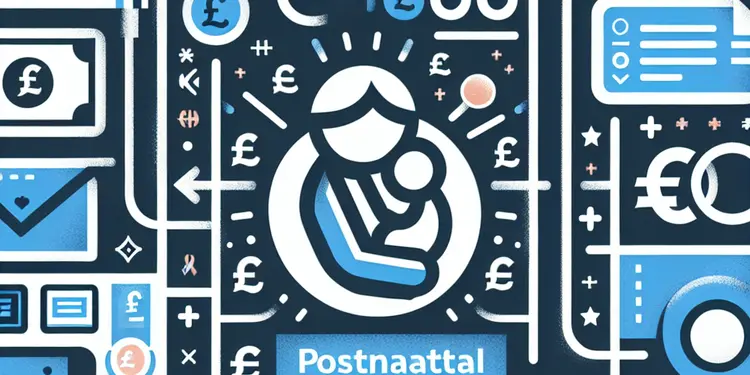
Is postnatal depression preventable?
Relevance: 93%
-
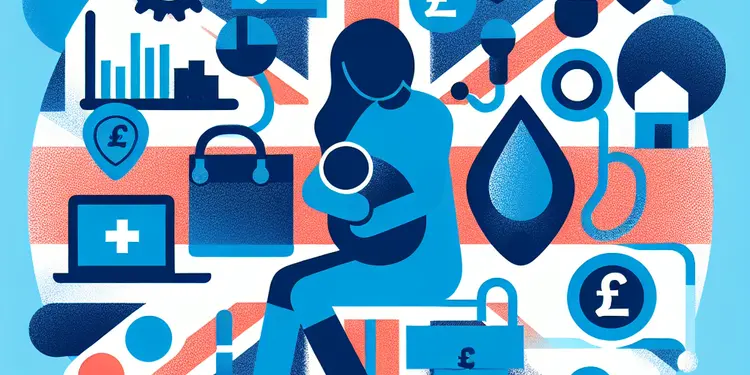
How is postnatal depression diagnosed?
Relevance: 92%
-

What causes postnatal depression?
Relevance: 92%
-
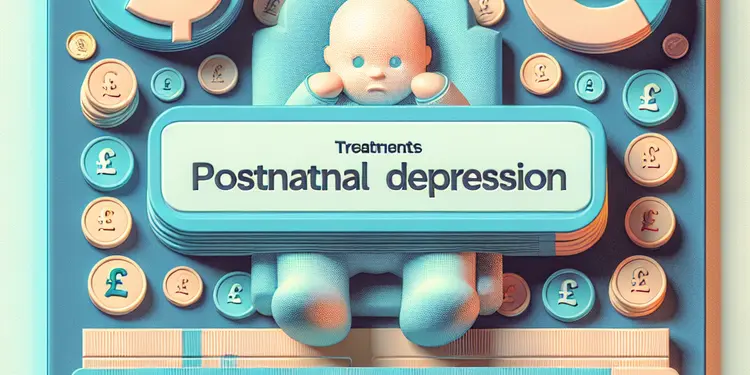
Are there treatments available for postnatal depression?
Relevance: 92%
-

Is postnatal depression a long-term condition?
Relevance: 92%
-

Postnatal Depression - Leanne's Story
Relevance: 91%
-
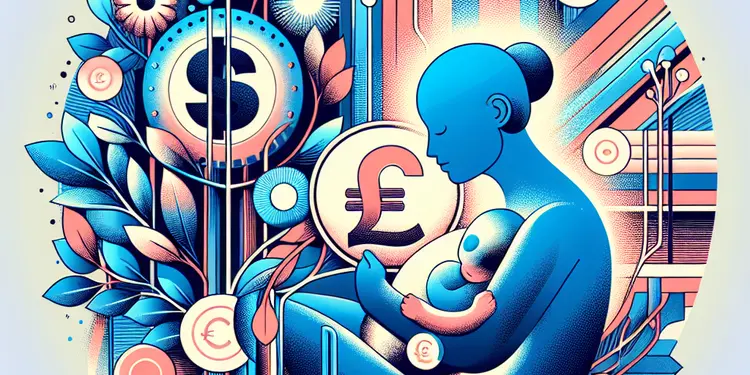
What are the symptoms of postnatal depression?
Relevance: 91%
-
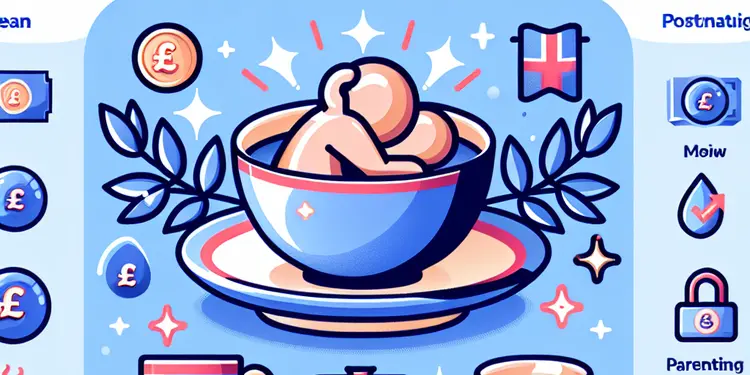
Are there support groups for postnatal depression?
Relevance: 89%
-

Can fathers experience postnatal depression?
Relevance: 88%
-
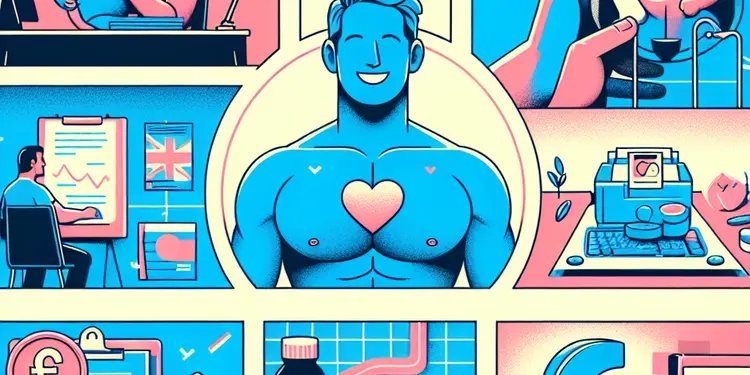
Is medication necessary for treating postnatal depression?
Relevance: 87%
-
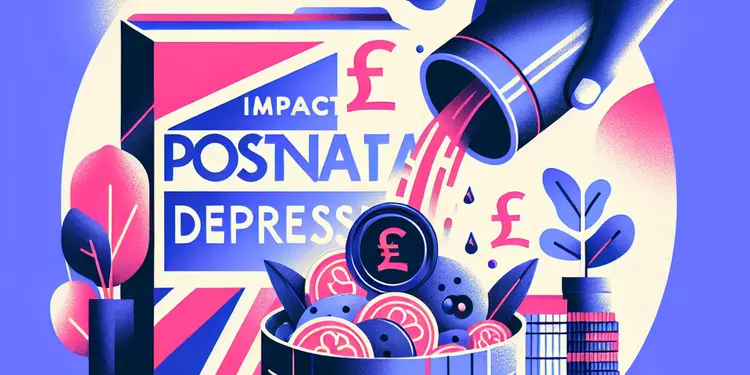
Can diet impact postnatal depression?
Relevance: 86%
-
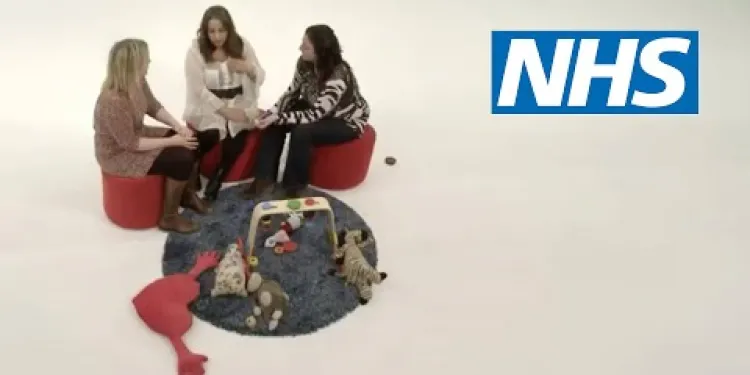
How do I know if I have postnatal depression? | NHS
Relevance: 85%
-
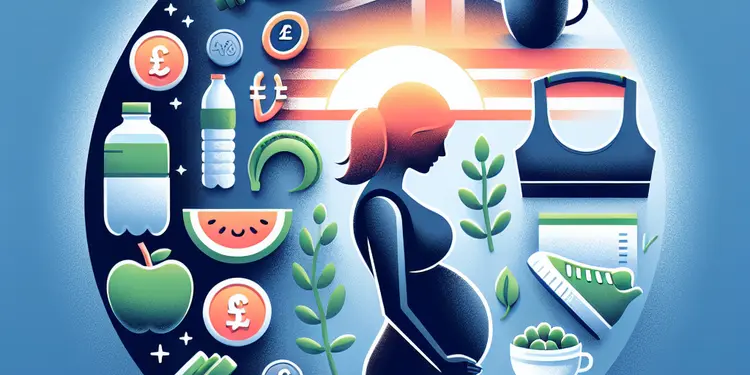
Can lifestyle changes help with postnatal depression?
Relevance: 85%
-
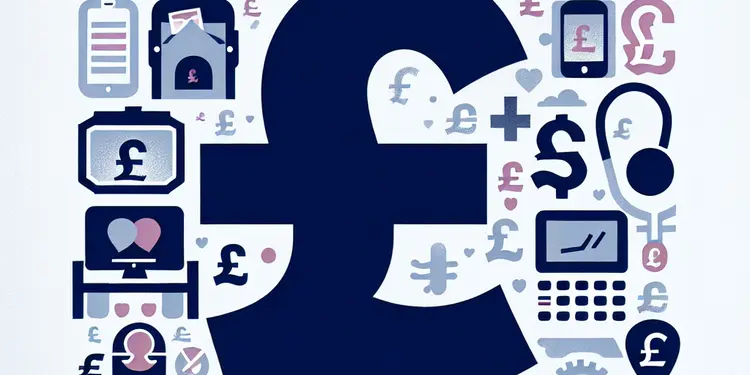
What should I do if I suspect I have postnatal depression?
Relevance: 85%
-
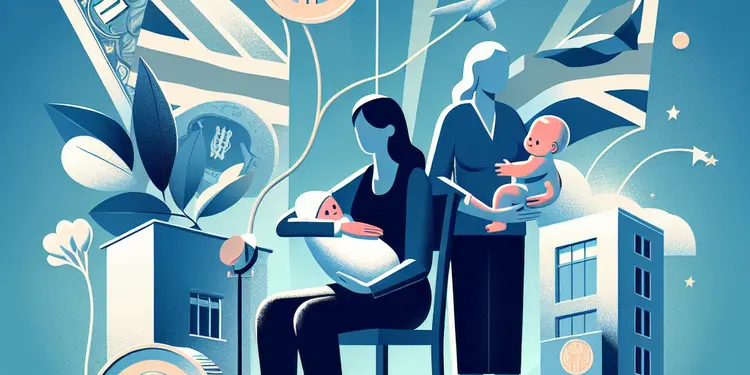
Can postnatal depression recur after treatment?
Relevance: 84%
-

Can postnatal depression affect subsequent pregnancies?
Relevance: 84%
-

Should someone with postnatal depression seek professional help?
Relevance: 82%
-
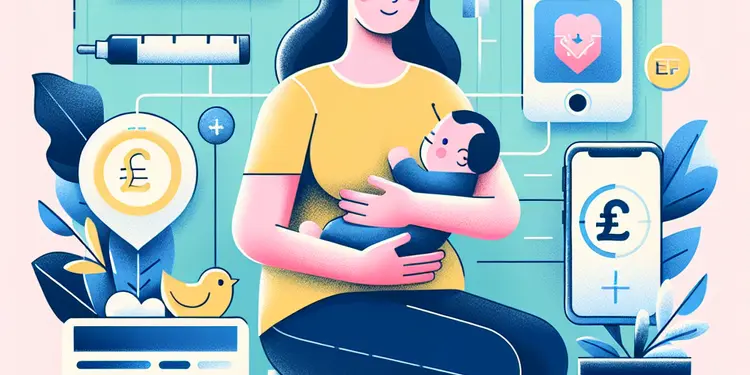
How is postnatal depression different from the 'baby blues'?
Relevance: 82%
-
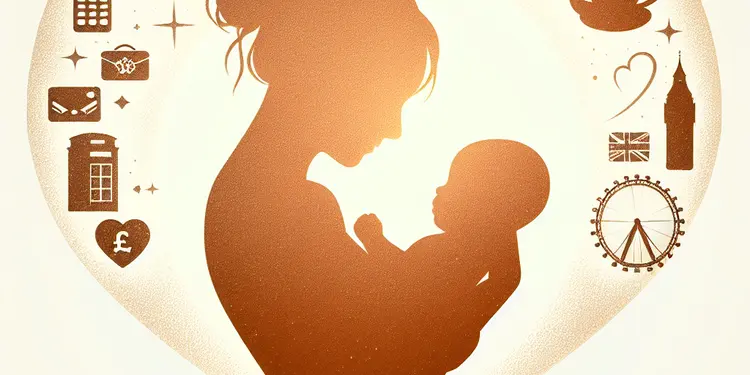
How does postnatal depression affect bonding with the baby?
Relevance: 81%
-
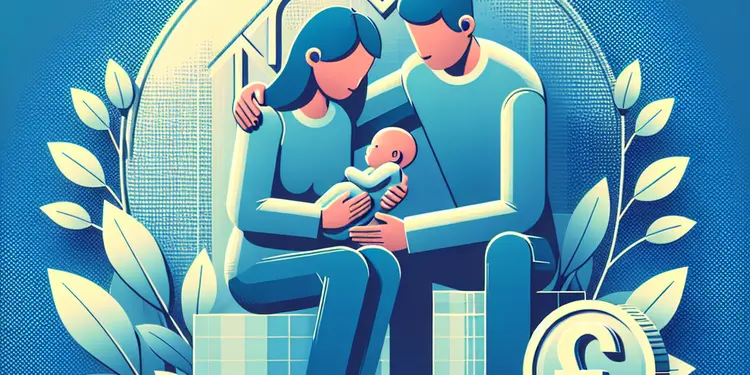
How can family members support someone with postnatal depression?
Relevance: 75%
-
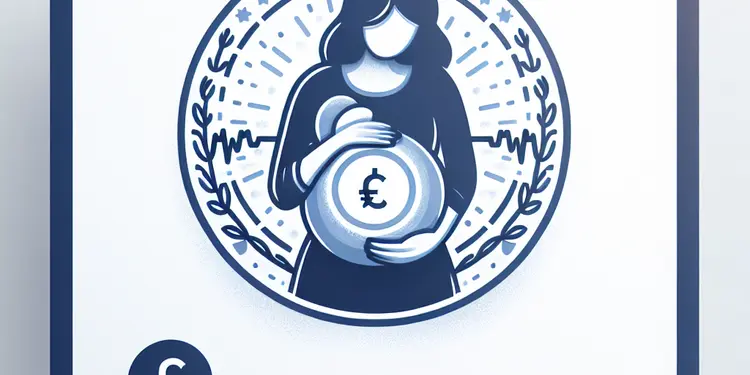
How soon after childbirth can postnatal depression occur?
Relevance: 57%
-

Treating anxiety and depression - www.slam.nhs.uk
Relevance: 39%
-
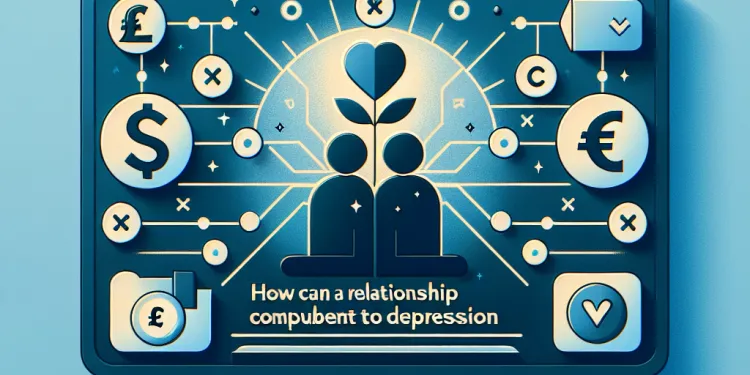
How can a relationship contribute to depression?
Relevance: 38%
-
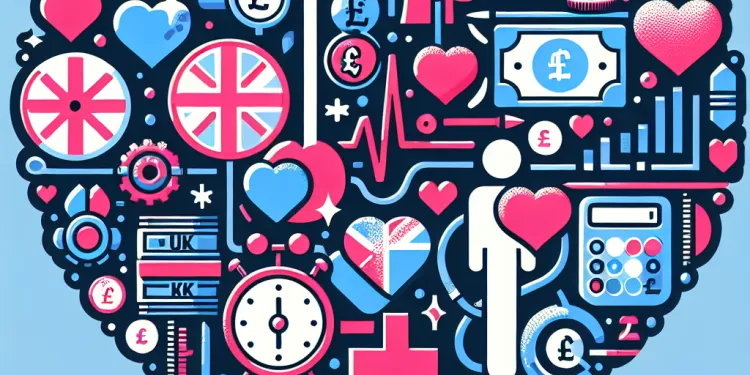
What are the signs that my relationship is making me depressed?
Relevance: 38%
-

Clinical depression: Lawrence's story | NHS
Relevance: 37%
-

Can physical symptoms be linked to relationship-induced depression?
Relevance: 36%
-
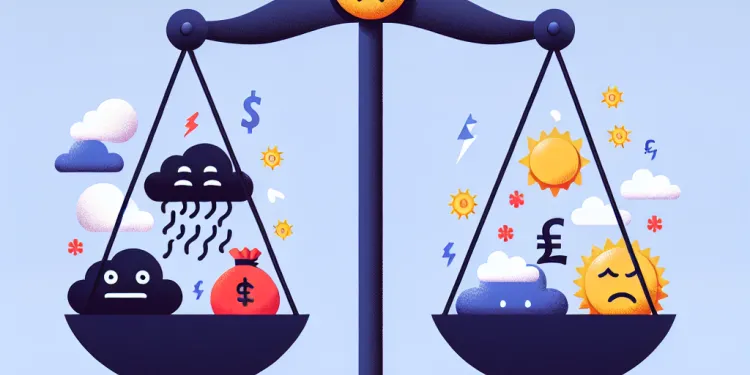
What role do unhealthy dynamics play in causing depression?
Relevance: 36%
-
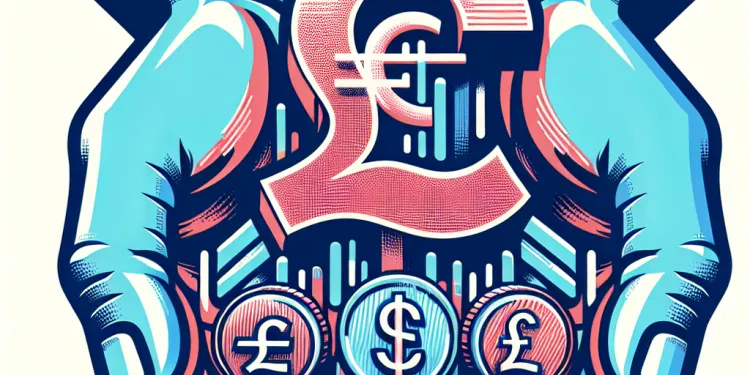
Are there any self-care strategies to cope with relationship-induced depression?
Relevance: 35%
-
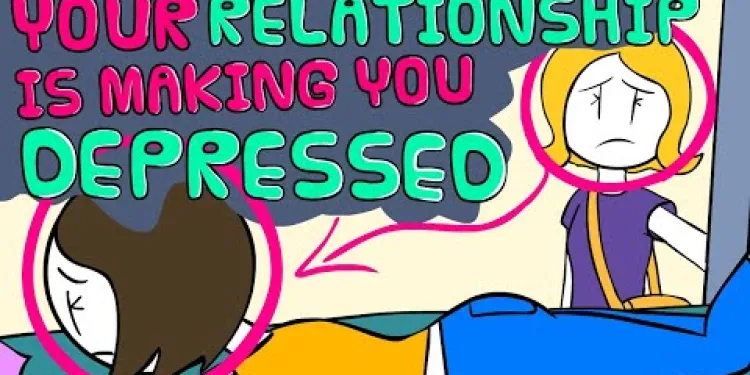
7 Signs Your Relationship is Making You Depressed
Relevance: 35%
-

I couldn't celebrate Hibs beating Hearts because I was that depressed
Relevance: 34%
-
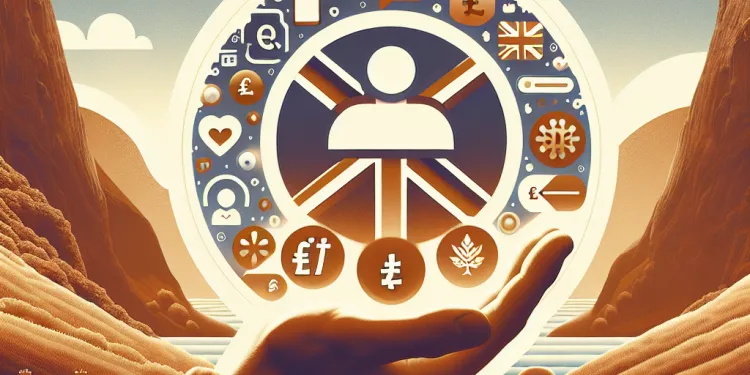
What should I do if my partner dismisses my feelings of depression?
Relevance: 32%
-
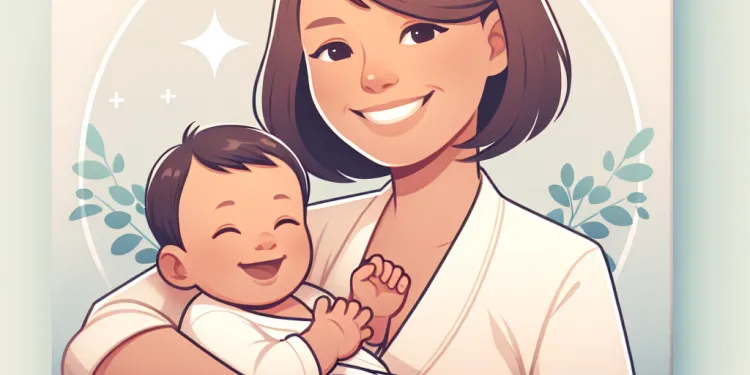
Postpartum Health: Mother and Baby
Relevance: 28%
-

How quickly can ketamine alleviate depression symptoms?
Relevance: 25%
-
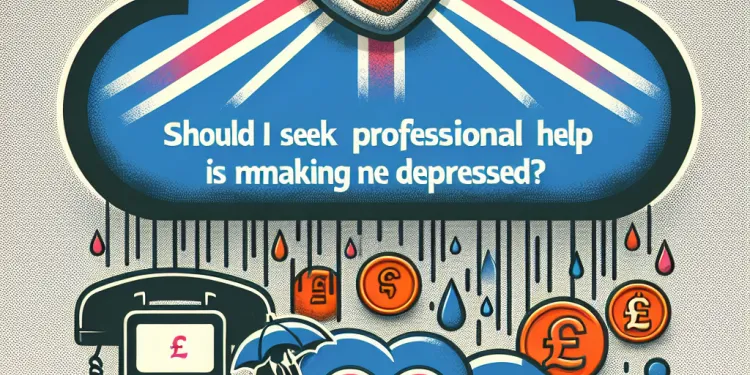
Should I seek professional help if my relationship is making me depressed?
Relevance: 25%
-

Can ketamine be used to treat major depressive disorder?
Relevance: 17%
-
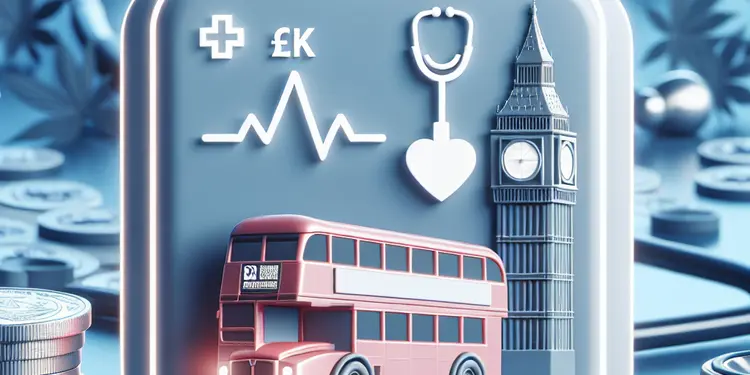
Are there any legal uses for ketamine?
Relevance: 17%
-

How is ketamine different from traditional antidepressants?
Relevance: 16%
-
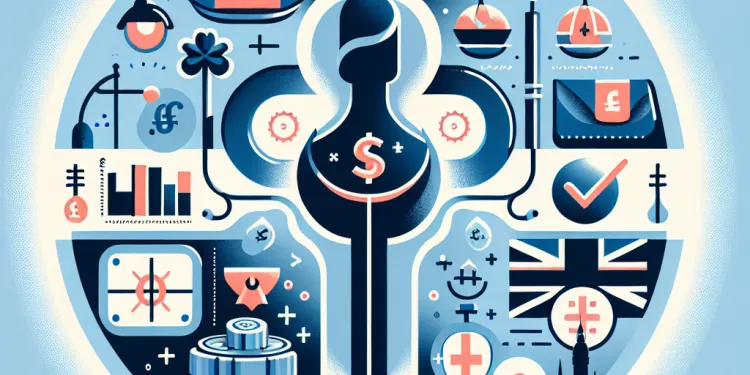
How long does it take to recover from a Caesarean birth?
Relevance: 16%
What is Postnatal Depression?
Postnatal depression (PND) is a type of depression that affects some mothers after giving birth. While feeling emotional and overwhelmed is common after childbirth—often called the "baby blues"—postnatal depression is more severe and long-lasting. It can develop within the first year after birth, affecting a mother's ability to care for herself, her baby, and her family.
Symptoms of Postnatal Depression
The symptoms of postnatal depression can vary in type and severity, but common symptoms include persistent sadness, a lack of enjoyment in activities previously found pleasurable, and feelings of hopelessness. Mothers may also experience difficulty bonding with their baby, suffer from disturbed sleep, or have thoughts of self-harm or harming their baby. Anxiety and irritability are also common symptoms, and the condition may significantly impact a mother's daily functioning and quality of life.
Causes of Postnatal Depression
There is no single cause of postnatal depression. It is likely a combination of physical, emotional, and social factors. Hormonal changes after childbirth can contribute, as can a history of mental health issues, lack of support, or stressful life events. Additionally, women who have experienced depression before are at a higher risk. It is important to remember that postnatal depression can affect any new mother, regardless of her situation or previous experiences.
Treatment and Support
Treating postnatal depression is crucial for both the mother and her family. Treatment often includes a combination of self-help, talking therapies, and medication. Cognitive behavioural therapy (CBT) and counselling are effective in many cases. Antidepressants may also be prescribed, especially if symptoms are severe. It’s important for mothers to seek help early on and for healthcare providers to offer a compassionate and supportive approach.
Support from family and friends is also vital. Encouragement and practical help with childcare or household tasks can make a significant difference. Mothers should be encouraged to talk about their feelings and seek professional help without fear of stigma.
Getting Help in the UK
In the UK, postnatal depression is recognised as a serious mental health condition. New mothers can seek help through their GP, midwife, or health visitor. Organizations such as the National Health Service (NHS), Postpartum Support International, and Mind offer resources and support. It is crucial to address postnatal depression promptly to ensure the wellbeing of both the mother and her baby.
If you suspect you or someone you know is suffering from postnatal depression, it is important to seek help as soon as possible. Early intervention can significantly improve outcomes and help mothers return to feeling healthy and capable of caring for themselves and their children.
What is Postnatal Depression?
Postnatal depression (PND) is when a new mother feels very sad after having a baby. Feeling a bit emotional after birth is normal and is called "baby blues." But postnatal depression is more serious and lasts longer. It can happen in the first year after a baby is born. It affects how a mother takes care of herself, her baby, and her family.
Symptoms of Postnatal Depression
Signs of postnatal depression can be different for everyone. Common signs are feeling very sad, not enjoying things like before, and feeling hopeless. A mother might have trouble bonding with her baby, have trouble sleeping, or have scary thoughts about hurting herself or the baby. Feeling anxious or easily annoyed is also common. These feelings can make it hard for a mother to do everyday tasks.
Causes of Postnatal Depression
There is no single reason for postnatal depression. It can be caused by a mix of body changes, feelings, and social issues. Changes in hormones after having a baby can play a part. A history of mental health problems, little support from others, or stressful events can also increase the risk. Even mothers who have never felt depressed before can get postnatal depression.
Treatment and Support
Getting help for postnatal depression is very important for the mother and her family. Treatment can include self-care, talking therapy, and medicine. Therapy like CBT (Cognitive Behavioural Therapy) and counseling can help. Medicine like antidepressants might be needed if the depression is serious. It is important for mothers to ask for help early. Doctors and nurses should be kind and supportive.
Help from family and friends is also very important. They can help by listening or helping with the baby or chores. Mothers should talk about how they feel and ask for professional help without feeling embarrassed.
Getting Help in the UK
In the UK, postnatal depression is treated as a serious health issue. New mothers can ask for help from their GP, midwife, or health visitor. Groups like the NHS, Postpartum Support International, and Mind also offer help. It is important to get help quickly so that both the mother and baby stay healthy.
If you think you or someone you know has postnatal depression, try to get help as soon as possible. Getting help early can make things much better and help mothers feel strong again, so they can take care of themselves and their children.
Frequently Asked Questions
What is postnatal depression?
Postnatal depression (PND) is a type of depression that many parents experience after having a baby. It's a common condition that can affect both mothers and fathers.
What are the symptoms of postnatal depression?
Symptoms can include feelings of sadness, low energy, changes in sleeping and eating patterns, anxiety, irritability, and a lack of interest or pleasure in activities.
How soon after childbirth can postnatal depression occur?
Postnatal depression can develop within the first few weeks after giving birth, but it can also occur up to a year later.
What causes postnatal depression?
The exact cause is unknown, but it's believed to be a combination of hormonal changes, fatigue, lifestyle adjustments, and genetic factors.
How is postnatal depression different from the 'baby blues'?
The 'baby blues' are mild, temporary symptoms that affect many new mothers and typically resolve within two weeks. Postnatal depression lasts longer and has more severe symptoms.
Can fathers experience postnatal depression?
Yes, fathers can also experience postnatal depression, although it is less commonly recognized.
How is postnatal depression diagnosed?
A healthcare professional can diagnose postnatal depression based on a clinical assessment and the symptoms described by the patient.
Are there treatments available for postnatal depression?
Yes, treatment options include therapy, counseling, support groups, and medication. The best treatment depends on individual circumstances.
Is postnatal depression a long-term condition?
With proper treatment, most people recover fully from postnatal depression, although some may experience ongoing challenges with mood.
How does postnatal depression affect bonding with the baby?
Postnatal depression can make bonding with the baby difficult, as parents may feel detached or have trouble feeling affection.
Can lifestyle changes help with postnatal depression?
Yes, regular physical activity, a healthy diet, adequate sleep, and a strong support network can help improve symptoms.
Can postnatal depression affect subsequent pregnancies?
Having experienced postnatal depression increases the risk of it occurring in future pregnancies, but it does not guarantee it.
Should someone with postnatal depression seek professional help?
Yes, professional help is important for managing and treating postnatal depression effectively.
Are there support groups for postnatal depression?
Yes, there are many support groups available for individuals experiencing postnatal depression, providing a space to share experiences and gain support.
Is postnatal depression preventable?
While it may not be completely preventable, early intervention and support can mitigate its impact.
Can diet impact postnatal depression?
A balanced diet can support overall health and may help improve mood, but it is not a substitute for professional treatment.
How can family members support someone with postnatal depression?
Family members can offer emotional support, assist with childcare and household tasks, and encourage seeking professional help.
Is medication necessary for treating postnatal depression?
Medication is one treatment option and may be more necessary in moderate to severe cases. A healthcare provider can guide this decision.
Can postnatal depression recur after treatment?
It's possible for postnatal depression to recur, especially in future pregnancies. Ongoing support and monitoring can help manage this risk.
What should I do if I suspect I have postnatal depression?
If you suspect you have postnatal depression, seek help from a healthcare professional to discuss your symptoms and explore treatment options.
What is postnatal depression?
Postnatal depression means feeling very sad after having a baby.
This can happen to moms or dads.
It is important to talk to someone who can help, like a doctor or nurse.
Things like talking to friends, going for walks, and resting can help you feel better.
After having a baby, some parents can feel very sad. This is called postnatal depression, or PND. It can happen to both mums and dads.
What are the signs of feeling sad after having a baby?
Many mums feel sad sometimes after having a baby. This is called postnatal depression. Here are some signs:
- Feeling sad or upset a lot.
- Crying often.
- Not wanting to do things you used to like.
- Feeling very tired all the time.
- Finding it hard to look after your baby.
- Not feeling close to your baby.
- Feeling worried all the time.
- Having trouble sleeping, even when the baby sleeps.
Remember, it's okay to ask for help. You can talk to a doctor, nurse, or someone you trust if you feel this way.
Here are some signs you might notice:
- Feeling sad.
- Feeling very tired.
- Sleeping a lot or not enough.
- Eating more or less than usual.
- Feeling worried.
- Getting upset easily.
- Not wanting to do things you used to enjoy.
Support tools or techniques can help, like:
- Talking to a friend or family member.
- Using a feelings chart to show how you feel.
- Trying relaxing activities, like deep breathing or drawing.
When can feeling very sad happen after having a baby?
Some moms can feel very sad soon after having a baby. This can happen in days or weeks.
If you feel this way, talk to someone like a doctor or a nurse.
It is important to know you are not alone. People can help you feel better.
After a baby is born, some people may feel very sad. This can happen in the first weeks or even up to a year later.
Why do some people feel very sad after having a baby?
We don't know exactly why it happens. But it might be because of changes in the body's hormones, feeling really tired, changes in how we live, and things we get from our parents.
For help, you can talk to a doctor. They can give advice and support.
What makes postnatal depression different from the 'baby blues'?
After having a baby, some people feel a bit sad or worried. This is called the 'baby blues'. It is normal and goes away in a few days.
But sometimes, new parents feel very sad for a longer time. This is called postnatal depression. It is stronger than the 'baby blues' and needs help from a doctor.
If you feel very sad, talk to a doctor or a nurse. They can help you feel better.
The 'baby blues' happen to many new mums. It means feeling a bit sad after having a baby. It usually goes away after two weeks.
Postnatal depression is different. It lasts longer and makes you feel really sad. It needs more help to get better.
If you're not feeling yourself, talking to someone can help a lot. Friends, family, or doctors are great people to talk to. Also, writing down your feelings or using phone apps can be useful.
Can Dads Feel Sad After a Baby Is Born?
Yes, sometimes dads can feel very sad when a new baby comes. This is called postnatal depression. It is okay for dads to talk about their feelings and get help.
Here are some ways to feel better:
- Talk to someone you trust.
- Chat with a doctor or a counselor.
- Spend time doing things you enjoy.
If you know a dad who seems sad, it’s nice to ask if they are okay and listen to them.
Yes, dads can feel sad after a new baby is born. This is called postnatal depression. People don't talk about it as much.
How do doctors know if a new mom has postnatal depression?
Doctors talk to the new mom about how she feels. They ask questions to see if she feels sad, tired, or worried. Sometimes, they use a list of questions called a “questionnaire.” The mom answers these questions to help the doctor understand her feelings better.
If you feel sad after having a baby, talk to someone you trust. It could be a friend, a family member, or a doctor.
It’s important to know you’re not alone, and there are people who can help you feel better.
A doctor or nurse can find out if someone has postnatal depression. They do this by talking to the person and asking about how they feel.
Can doctors help with postnatal depression?
Yes, there are ways to help. You can talk to a therapist, go to counseling, join support groups, or take medicine. The right help depends on what each person needs.
Does feeling sad after having a baby last a long time?
With the right help, most people get better from feeling sad after having a baby. Some people might still have some sad days.
What is postnatal depression and how does it affect bonding with the baby?
Postnatal depression is when a new mother feels very sad after having a baby.
This can make it hard for her to feel close to her baby.
Here are some tips to help:
- Talk to someone you trust about how you feel.
- Ask for help from family and friends.
- Spend quiet time with your baby, like holding or rocking them.
- Try to rest when the baby rests.
- See a doctor or therapist for more support.
After having a baby, some parents can feel very sad. This is called postnatal depression.
It can be hard for them to feel close to their baby. They might not feel loving.
If this happens, talking to a doctor or counselor can help. Joining a support group or talking to friends can also make things better.
Can changing how you live help with feeling sad after having a baby?
Sometimes, after having a baby, new moms feel very sad. This is called postnatal depression.
Changing how you live might help you feel better. Here are some things to try:
- Eat Healthy Foods: Eating fruits, vegetables, and other good foods can help you feel well.
- Get Some Rest: Try to sleep when the baby sleeps. Rest helps your body and mind.
- Go Outside: Spend time in the fresh air and sunshine. It can lift your mood.
- Move Your Body: Taking a short walk or doing light exercises can help you feel better.
- Talk to Someone: Sharing your feelings with a friend or family member can make you feel supported.
You can also use tools or techniques to help:
- Write Down Your Feelings: Keeping a journal can help you understand your feelings.
- Deep Breathing: Take slow, deep breaths to help you calm down.
If you're still feeling very sad, it's important to talk to a doctor or a health care provider. They can help you find more ways to feel better.
Yes, doing exercise often, eating healthy food, getting enough sleep, and having good friends and family can make you feel better.
Does feeling very sad after having a baby affect future pregnancies?
After having a baby, some parents feel very sad. This is called postnatal depression.
This sadness can make having future babies hard. It is important to talk to a doctor about your feelings.
Talking to someone can help you feel better and plan for future pregnancies.
Using tools like drawing your feelings or keeping a diary can also help.
If you felt very sad after having a baby before, you might feel the same again with another baby, but it might not happen.
Should a person who feels very sad after having a baby talk to a doctor?
It's important for anyone feeling really sad, worried, or not themselves after having a baby to talk to someone who can help. This could be a doctor or a nurse.
They can listen, give good advice, and help make things better.
Here are some things that might help:
- Talking to someone you trust about how you feel.
- Writing down your feelings in a diary or notebook.
- Going for a walk or doing gentle exercise.
- Resting when you can and eating healthy food.
You are not alone, and there are people who can help you feel better.
Yes, getting help from doctors or nurses is very important to feel better after having a baby.
Is there help for new mums feeling sad?
Yes, there are groups that can help new mums who feel sad after having a baby. These groups are called support groups for postnatal depression. They help mums talk about their feelings and get support.
Here are some ideas to find help:
- Ask your doctor for information about local groups.
- Look online for support groups for new mums.
- Talk to other mums. They may know of groups that can help.
Yes, there are many support groups for people with postnatal depression. These groups help you talk about your feelings and get support.
Can you stop feeling sad after having a baby?
We might not be able to stop it completely, but getting help early can make things better.
Can food affect how a new mom feels?
Eating healthy food can help you feel better and stay healthy. But if you are feeling sad or worried, healthy eating is not the same as seeing a doctor. A doctor can give you the help you need.
How can family help someone who feels very sad after having a baby?
Family can help by doing some things. It is important to listen and talk kindly. Being there and helping with the baby can make a big difference. Remind them it is okay to ask for help.
Here are some tips:
- Offer to help with chores or cooking.
- Spend time with them, maybe watch a funny movie together.
- Encourage them to see a doctor or therapist.
- Be patient and understanding.
There are also tools that can help, like talking to a counselor or joining support groups online.
Family can help you feel loved and happy. They can look after kids, clean the house, and tell you to see a doctor if you need it.
Do you need medicine to help with feeling sad after having a baby?
Medicines can help people when they are very sick. If someone is a little sick, they might not need medicine. A doctor or nurse can help decide if medicine is needed.
Can you get postnatal depression again after getting better?
After you have a baby, some people can feel very sad or depressed. This is called postnatal depression. It can happen again when you have more babies.
Getting help and having someone check on you can make it easier to feel better.
What should I do if I think I have postnatal depression?
If you feel very sad after having a baby, you might have postnatal depression.
Here are some steps you can take:
- Talk to a doctor or nurse. They can help you understand your feelings.
- Share your feelings with someone you trust, like a family member or friend.
- Join a support group for new parents. It can help to talk with others who feel the same way.
- Try to rest when you can. Taking care of yourself is important.
- Use apps or websites made to help people feel better, like meditation or relaxation apps.
Remember, it's okay to ask for help. You are not alone.
If you think you might have postnatal depression, talk to a doctor or nurse. They can help you understand what you are feeling and talk about ways to feel better.
Useful Links
This website offers general information and is not a substitute for professional advice.
Always seek guidance from qualified professionals.
If you have any medical concerns or need urgent help, contact a healthcare professional or emergency services immediately.
Some of this content was generated with AI assistance. We’ve done our best to keep it accurate, helpful, and human-friendly.
- Ergsy carfully checks the information in the videos we provide here.
- Videos shown by Youtube after a video has completed, have NOT been reviewed by ERGSY.
- To view, click the arrow in centre of video.
- Most of the videos you find here will have subtitles and/or closed captions available.
- You may need to turn these on, and choose your preferred language.
- Go to the video you'd like to watch.
- If closed captions (CC) are available, settings will be visible on the bottom right of the video player.
- To turn on Captions, click settings .
- To turn off Captions, click settings again.
More Items From Ergsy search
-

Postnatal Depression
Relevance: 100%
-

What is postnatal depression?
Relevance: 96%
-

Is postnatal depression preventable?
Relevance: 93%
-

How is postnatal depression diagnosed?
Relevance: 92%
-

What causes postnatal depression?
Relevance: 92%
-

Are there treatments available for postnatal depression?
Relevance: 92%
-

Is postnatal depression a long-term condition?
Relevance: 92%
-

Postnatal Depression - Leanne's Story
Relevance: 91%
-

What are the symptoms of postnatal depression?
Relevance: 91%
-

Are there support groups for postnatal depression?
Relevance: 89%
-

Can fathers experience postnatal depression?
Relevance: 88%
-

Is medication necessary for treating postnatal depression?
Relevance: 87%
-

Can diet impact postnatal depression?
Relevance: 86%
-

How do I know if I have postnatal depression? | NHS
Relevance: 85%
-

Can lifestyle changes help with postnatal depression?
Relevance: 85%
-

What should I do if I suspect I have postnatal depression?
Relevance: 85%
-

Can postnatal depression recur after treatment?
Relevance: 84%
-

Can postnatal depression affect subsequent pregnancies?
Relevance: 84%
-

Should someone with postnatal depression seek professional help?
Relevance: 82%
-

How is postnatal depression different from the 'baby blues'?
Relevance: 82%
-

How does postnatal depression affect bonding with the baby?
Relevance: 81%
-

How can family members support someone with postnatal depression?
Relevance: 75%
-

How soon after childbirth can postnatal depression occur?
Relevance: 57%
-

Treating anxiety and depression - www.slam.nhs.uk
Relevance: 39%
-

How can a relationship contribute to depression?
Relevance: 38%
-

What are the signs that my relationship is making me depressed?
Relevance: 38%
-

Clinical depression: Lawrence's story | NHS
Relevance: 37%
-

Can physical symptoms be linked to relationship-induced depression?
Relevance: 36%
-

What role do unhealthy dynamics play in causing depression?
Relevance: 36%
-

Are there any self-care strategies to cope with relationship-induced depression?
Relevance: 35%
-

7 Signs Your Relationship is Making You Depressed
Relevance: 35%
-

I couldn't celebrate Hibs beating Hearts because I was that depressed
Relevance: 34%
-

What should I do if my partner dismisses my feelings of depression?
Relevance: 32%
-

Postpartum Health: Mother and Baby
Relevance: 28%
-

How quickly can ketamine alleviate depression symptoms?
Relevance: 25%
-

Should I seek professional help if my relationship is making me depressed?
Relevance: 25%
-

Can ketamine be used to treat major depressive disorder?
Relevance: 17%
-

Are there any legal uses for ketamine?
Relevance: 17%
-

How is ketamine different from traditional antidepressants?
Relevance: 16%
-

How long does it take to recover from a Caesarean birth?
Relevance: 16%


